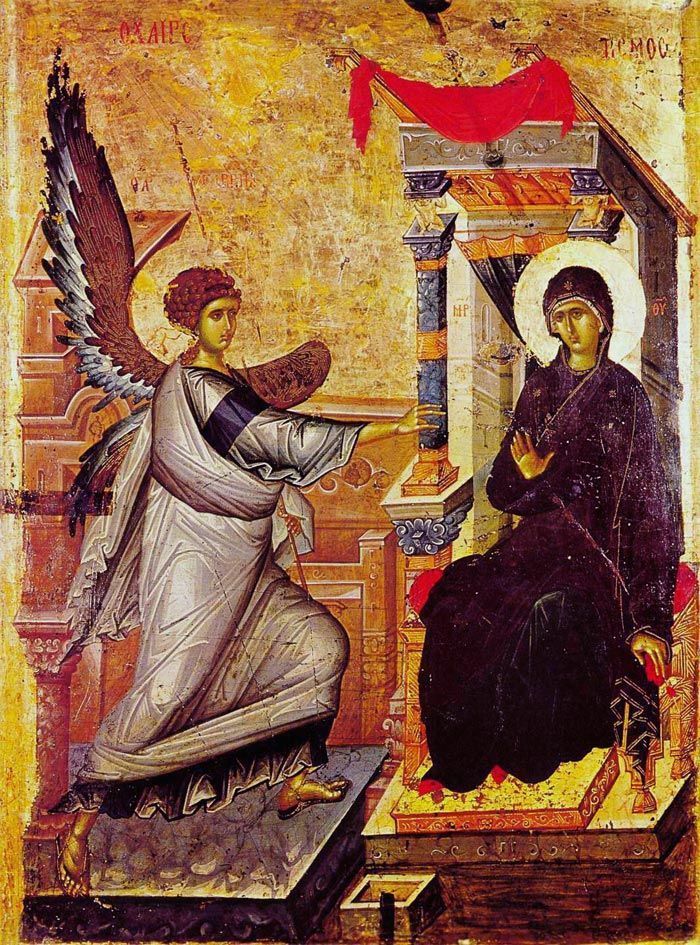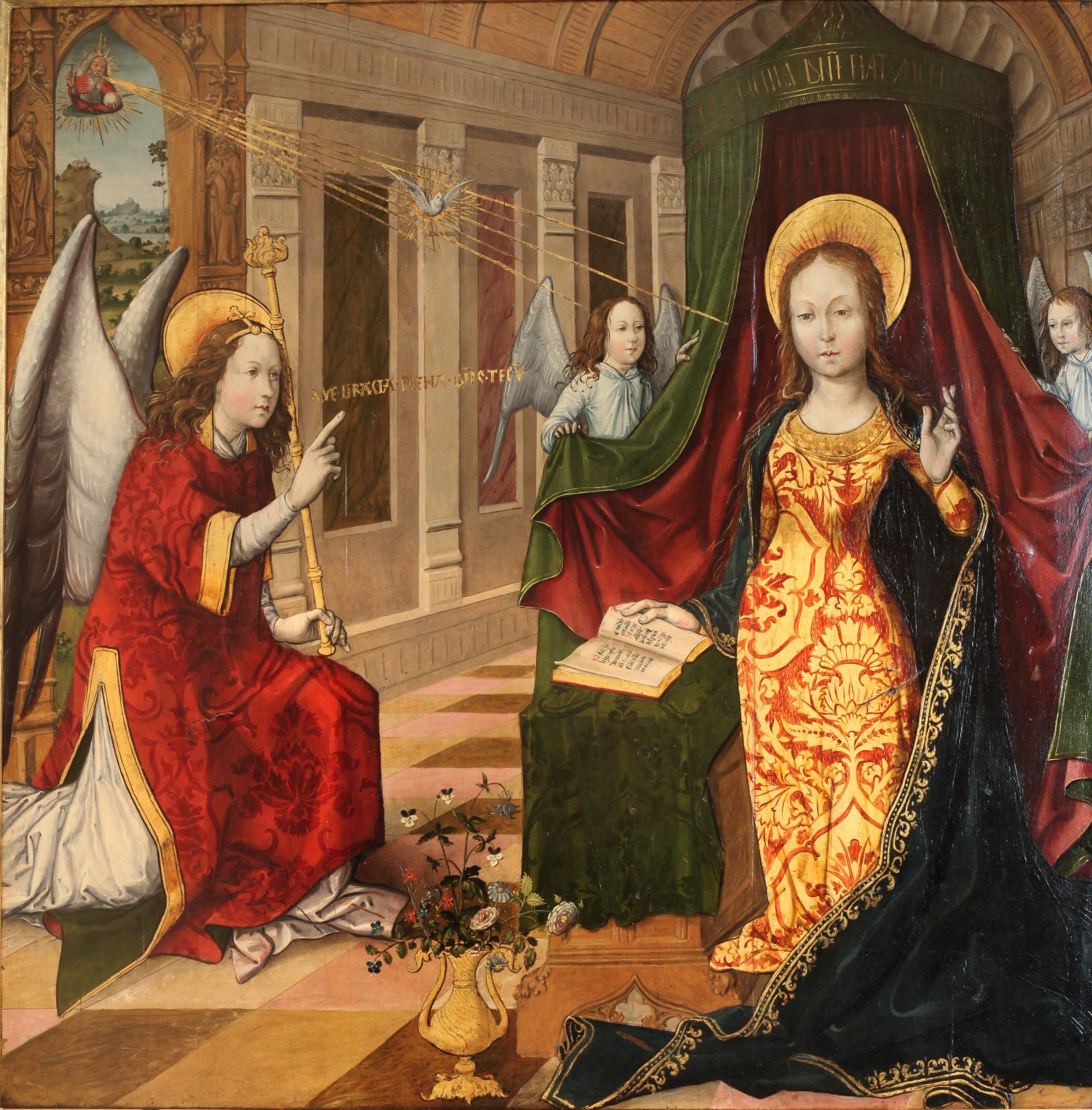Message of Abbot Paul - Monday - 8th April 2024
Abbot Paul • April 7, 2024
Today, although it’s not 25th March, the Church in the West keeps the solemnity of the Annunciation, transferred from the Monday of Holy Week. It marks the day when the angel Gabriel appeared to Mary to announce that it was God’s desire that his Son should become incarnate in her womb through the grace of the Holy Spirit. It is the day on which she humbly accepted the Father’s will and became the Mother of God, Theotokos in Greek, the one who bore God in her womb and gave birth to him as man. It is the day on which we remember and give thanks for the Incarnation, the day on which God became man, that through his birth, life, death, resurrection and outpouring of the Holy Spirit, we might become God, in the words of St Athanasius, the great Doctor of the Church. That might sound outlandish, but it’s not, it is the central dogma of our faith, the deification of Man through the incarnation of God. I use the traditional term Man to denote all human beings. Today’s Gospel passage is the well-known account of the Annunciation from Luke, (Lk 1: 26-38). It begins the Christmas story we love so much.
“The angel Gabriel was sent by God to a town in Galilee called Nazareth, to a virgin betrothed to a man named Joseph, of the House of David; and the virgin’s name was Mary. He went in and said to her, ‘Rejoice, so highly favoured! The Lord is with you.’” Luke has the gift of writing beautiful Greek, which translates well into English, and of packing a lot of information into a sentence. Just look at the first one here. In Greek the feast is known as Ευαγγελισμός της Θεοτόκου. You can see the link to evangelisation, the proclamation of the Good News, since it is the angel Gabriel who first announces the Gospel, the Good News, to Mary. ‘Hail, Mary, full of grace’ is the more traditional translation. This term ‘full of grace’ reveals to us Mary’s state of grace, that she is immaculate, and has been designated and prepared from all eternity to be the Virgin Mother of God. Hence, ‘the Lord is with Thee,’ even before he is physically incarnate in her womb.
“She was deeply disturbed by these words and asked herself what this greeting could mean, but the angel said to her, ‘Mary, do not be afraid; you have won God’s favour. Listen! You are to conceive and bear a son, and you must name him Jesus. He will be great and will be called Son of the Most High. The Lord God will give him the throne of his ancestor David; he will rule over the House of Jacob for ever and his reign will have no end.’“ Gabriel explains God’s plan to her. She is already disturbed by his greeting: we can imagine how confused she becomes by the time he has given his message. But this young girl remains calm and in control. She hasn’t quite understood his message and he hasn’t explained it fully. She brings up an important detail. “Mary said to the angel, ‘But how can this come about, since I am a virgin?’ ‘The Holy Spirit will come upon you’ the angel answered ‘and the power of the Most High will cover you with its shadow. And so the child will be holy and will be called Son of God. Know this too: your kinswoman Elizabeth has, in her old age, herself conceived a son, and she whom people called barren is now in her sixth month, for nothing is impossible to God.’” Mary doesn’t object, but asks for further clarification, a wise woman. She reminds us that we can ask questions of God! Then all is revealed, not only the Holy Spirit’s part in the Incarnation, but also extra proof of God’s love and his ability to do what we humans deem impossible. Mary, a young virgin, is to conceive and remain for ever virgin, while her cousin. Elizabeth, whom everyone knows to be barren, has conceived by God’s grace, when even hope had faded.
The account ends with Mary’s famous words. How many times have we heard them? How many times have we repeated them? “Behold the handmaid of the Lord. Be it done to me according to thy word.” In modern translation we read, “‘I am the handmaid of the Lord,’ said Mary ‘let what you have said be done to me.’ And the angel left her.” What can the angel do once Mary has spoken, but leave in respectful silence? We, too, before the mystery of the Incarnation, remain silent in awe and gratitude. It would be good today to spend some time in silence to wonder at the mystery of the Incarnation.















